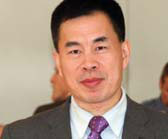Debate bubbles over sugary drink ban
Updated: 2012-06-12 08:05
By Chen Weihua (China Daily)
|
||||||||

New York City Mayor Michael Bloomberg's recent proposal to ban supersize soda and sugary drinks to fight obesity has triggered a debate that is largely between personal liberty and solid science.
Under Bloomberg's plan, any soda or sugary drink larger than 473 ml will be forbidden in local restaurants, theaters and stadiums. Diet coke, fruit juice and dairy-based drinks will not be affected, and neither will sales of sugary drinks in supermarkets and grocery stores, which are regulated by the state.
The proposal is expected to be submitted to the New York City Board of Health in the coming days. If passed, which is highly likely given that the board's members are appointed by Bloomberg, it could take effect as early as in March 2013. Businesses that don't comply could face a $200 fine.
The proposal has come under fire in the past two weeks as restaurant owners, vendors and beverage manufacturers, politicians, consumers and columnists blasted the government for going too far. While it is no surprise for businesses to oppose the idea because it will cut their profits, the protest from individuals arises mostly from the American thinking that people should be left to make their own decision, albeit a bad one, and the government should play no role in this.
A NY1-Marist poll last week found that 53 percent of New Yorkers said the proposal is a bad idea while 42 percent like it.
To support Bloomberg's proposal, a 23-page task force report on reversing the epidemic of obesity posted on the New York City government website provides solid scientific data and analysis, yet major news organizations and opponents have so far turned a blind eye to the facts.
A separate news release on the website issued on Friday included quotes from leading doctors, health researchers, civic leaders and policymakers across the US who support Bloomberg's ban.
While New Yorkers don't seem ready for an outright ban, Chinese tourist Xiao Li was amazed to find that the small Coke she ordered at the AMC Empire 25 theaters in Times Square was a jumbo 946 ml in Chinese eyes.
One of her many observations from traveling in the US, where she marvels at the beautiful landscape and friendly people, is the huge number of overweight men and women.
To Li, the hazards of drinking too much soda and sugary drinks are nothing new, even in China. She said that over the years doctors, especially traditional Chinese medicine doctors, had advised her not to let her underage daughter drink Coke or Pepsi.
However, that has not prevented soft drink giants from expanding into the Chinese market. Just two months ago, Coca-Cola opened its 42nd bottling plant in Yingkou, Liaoning province. It promised to pour $4 billion into China over the next three years.
China is already Coca-Cola's third-largest market after the US and Mexico. The average Chinese now consumes 39 bottles of Coca-Cola products each year, Securities Times reported.
The obesity rate in China has grown rapidly over the past 20 years. Data from the World Health Organization shows that the national rate is below 5 percent, but the rates in some cities are greater than 20 percent. The problem has been attributed by experts largely to the intrusion of fast food, soda and sugary drinks.
It may not be long before Chinese cities are forced to follow Bloomberg's proposal. But whether this will also become a war of personal liberty over solid science might vary from country to country.
Contact the writer at chenweihua@chinadaily.com.cn
(China Daily 06/12/2012 page12)

 Relief reaches isolated village
Relief reaches isolated village
 Rainfall poses new threats to quake-hit region
Rainfall poses new threats to quake-hit region
 Funerals begin for Boston bombing victims
Funerals begin for Boston bombing victims
 Quake takeaway from China's Air Force
Quake takeaway from China's Air Force
 Obama celebrates young inventors at science fair
Obama celebrates young inventors at science fair
 Earth Day marked around the world
Earth Day marked around the world
 Volunteer team helping students find sense of normalcy
Volunteer team helping students find sense of normalcy
 Ethnic groups quick to join rescue efforts
Ethnic groups quick to join rescue efforts
Most Viewed
Editor's Picks

|

|

|

|

|

|
Today's Top News
Health new priority for quake zone
Xi meets US top military officer
Japan's boats driven out of Diaoyu
China mulls online shopping legislation
Bird flu death toll rises to 22
Putin appoints new ambassador to China
Japanese ships blocked from Diaoyu Islands
Inspired by Guan, more Chinese pick up golf
US Weekly

|

|






